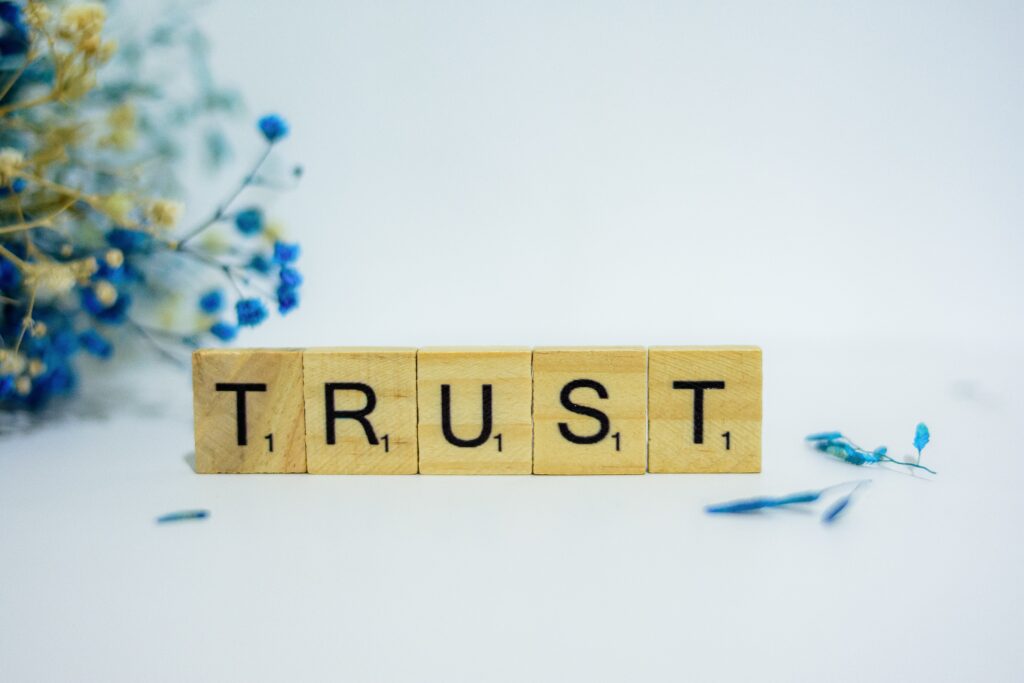Rebuilding trust during recovery is a complex landscape to navigate. Yet during recovery, rebuilding trust with loved ones is often a paramount yet challenging task that crucial to undertake. For those who have battled addiction, it’s not just a journey towards personal redemption but also a path towards restoring fractured relationships. In this blog post, we’ll explore the intricate process of rebuilding trust after addiction.
The Shadow of Addiction
Before diving into the heart of the matter, let’s briefly explore the dark shadow of addiction. Addiction is an all-consuming force that not only takes a toll on the individual but casts a long, ominous shadow over their relationships as well. It erodes trust, shatters bonds, and leaves emotional wreckage in its wake. Sometimes, when in the throes of addiction, you can’t see the being caused to loved ones.
Acknowledging the Past
Rebuilding trust during recovery starts with acknowledging the past and that honesty and self-awareness are crucial in this journey. Admitting to the pain caused during addiction can be a gut-wrenching process, but it is essential in order to truely move forward. Often we need to “I messed up, and I hurt you” in order to start to re build the trust we have broken.
It’s an important part of the process not to minimise or rationalise our actions. Addiction is often driven by desperation, but this doesn’t excuse the pain we inflict on those we care about. Acknowledging the hurt we’ve caused is the first step towards healing.
Actions Speak Louder Than Words

After admitting to the past, it’s time to show that we’ve changed. This is where actions speak louder than words. It’s important to emphasise the importance of consistent, positive actions in rebuilding trust. Rather than running away, standing up and taking action to show loved ones that we are making positive action to turn our lives around shows we care about the pain we have caused.
One of the key elements in my journey towards rebuilding trust is staying committed to your recovery. Loved ones needed to see that you’re serious about staying sober and making amends. Consistently attending therapy, support groups, taking care of your physical and mental health and having them involved in any key milestones all play a part in demonstrating your commitment.
Additionally, it’s essential to communicate openly with loved ones about your progress. Transparency about your challenges, triumphs, and setbacks fosters a sense of involvement and reassurance. They need to know that you’re dedicated to making amends and maintaining your recovery.
Patience, Patience, Patience
Rebuilding trust is not a sprint; it’s a marathon. This is a lesson I’ve learned the hard way and one that I often share. We can’t expect others to believe that we are serious about staiying sober when we’ve told loved ones countless times before that we we’re going to go sober only to not being fully committed and repeating the distructive behavior. It’s like the boy who cried wolf, one too many times. Patience is a virtue, and it’s especially crucial in the context of rebuilding trust.
Loved ones may be skeptical, hurt, or cautious, and they have every right to be. Healing takes time, and it’s vital to respect their pace. Pushing too hard or expecting instant forgiveness can actually hinder the process. It’s important to allow them to express their feelings and concerns without judgment.
Another hard reality to consider is that loved ones may not be fully in your corner as you embark your sober journey. If you have told them time and time again that you will change, they have given their support only for you to not be fully committed, why would they thinkthis will be any different?
Sometimes you have to pull upon the support of others outside your imediate family and friends to support you through the early days until you can really prove that you mean business.
Moreover, patience extends to our own expectations. We must be patient with ourselves as well (easier said than done!). Recovery is an ongoing journey, and setbacks can happen. What’s crucial is our ability to pick ourselves up, learn from our mistakes, and continue moving forward. This resilience demonstrates to our loved ones that we’re committed to the long-term process of change.
Rebuilding Trust in Action

Let’s delve into some concrete actions and strategies I’ve employed on my journey to rebuild trust with my loved ones.
- Consistency: I cannot stress this enough. Consistency in actions, communication, and behavior is key. It’s about showing up every day and demonstrating through your actions that you’ve changed.
- Accountability: Taking responsibility for your actions is paramount. Be willing to admit when you’re wrong, make amends when necessary, and actively work on addressing the underlying issues that led to addiction.
- Reliable Boundaries: Setting and respecting boundaries is vital for both you and your loved ones. Establishing clear boundaries helps prevent relapse triggers and fosters a sense of safety and trust.
- Empathy and Understanding: Remember that your loved ones have been hurt too. Show empathy and understanding towards their feelings, even if it’s difficult. Listening actively and validating their emotions can go a long way in rebuilding trust.
- Making Amends: Making amends isn’t just a step in twelve-step programs; it’s a crucial part of rebuilding trust. Apologise sincerely for the pain you’ve caused, and whenever possible, take actions to make things right. That being said sometimes loved ones have hurt us in return. Having a honest conversation works both ways towards making amends.
- Consistent Communication: Maintain open lines of communication. Regularly check in with your loved ones, share your progress, and ask for their input and feedback on your recovery journey.
- Self-Care: Don’t neglect your own well-being. Taking care of your mental and physical health shows that you’re committed to maintaining your recovery and being the best version of yourself for your loved ones.
- Focus on yourself: At the end of the day rebuilding trust means changing the behaviours which lead us to loose a loved ones trust. The only way to regain this trust is to change the behaviour and that means focusing on yourself and your sobriety. Just because you are working on re building trust with a loved on doesnt mean you can’t ask for compassion and support if you need it.
The Role of Forgiveness
Forgiveness is often a central theme in the process of rebuilding trust. It’s a topic that I’ve explored extensively on my sobriety blog. Forgiveness can be a complex and multifaceted concept, especially when it comes to addiction recovery.
For those who have been hurt by addiction, forgiveness may seem like an unattainable goal. They may grapple with feelings of anger, betrayal, and pain. Recognise that forgiveness is a personal journey for each individual affected by addiction, and it may not be immediate or complete.
As the person in recovery, it’s not our place to demand forgiveness. Instead, our focus should be on making amends, showing consistent change, and allowing our loved ones the time and space they need to come to terms with their own feelings. Forgiveness, if it happens, is a healing process that may take time.
In my own journey, I’ve found that practicing self-forgiveness was equally important. I had to let go of guilt and shame to move forward. Self-forgiveness allowed me to be more compassionate towards myself and, in turn, towards those I had hurt.
Rebuilding Trust: A Two-Way Street
While much of the responsibility for rebuilding trust falls on the person in recovery, it’s also a two-way street. Trust cannot be rebuilt in isolation. It requires effort, understanding, and commitment from both sides.
For those who love someone in recovery, it’s essential to educate themselves about addiction and recovery. Understanding the nature of addiction, the challenges of recovery, and the potential for relapse can help loved ones be more empathetic and supportive.
Furthermore, loved ones may need their own support system. Al-Anon and Nar-Anon meetings are valuable resources for people who have been affected by someone else’s addiction. Other support groups are listed here. These support groups offer a safe space to share experiences, gain insight, and find emotional support.
Ultimately, rebuilding trust is a collaborative effort. It involves both parties working together to heal the wounds of the past and build a stronger, healthier relationship for the future.
Conclusion
Rebuilding trust after addiction is a journey of redemption and healing that I have intimately experienced. It’s a complex process that demands patience, consistency, and unwavering commitment.
Acknowledging the past, demonstrating change through actions, and practicing patience are all crucial steps. Additionally, both parties involved must understand the role of forgiveness as part if the process of rebuilding trust
